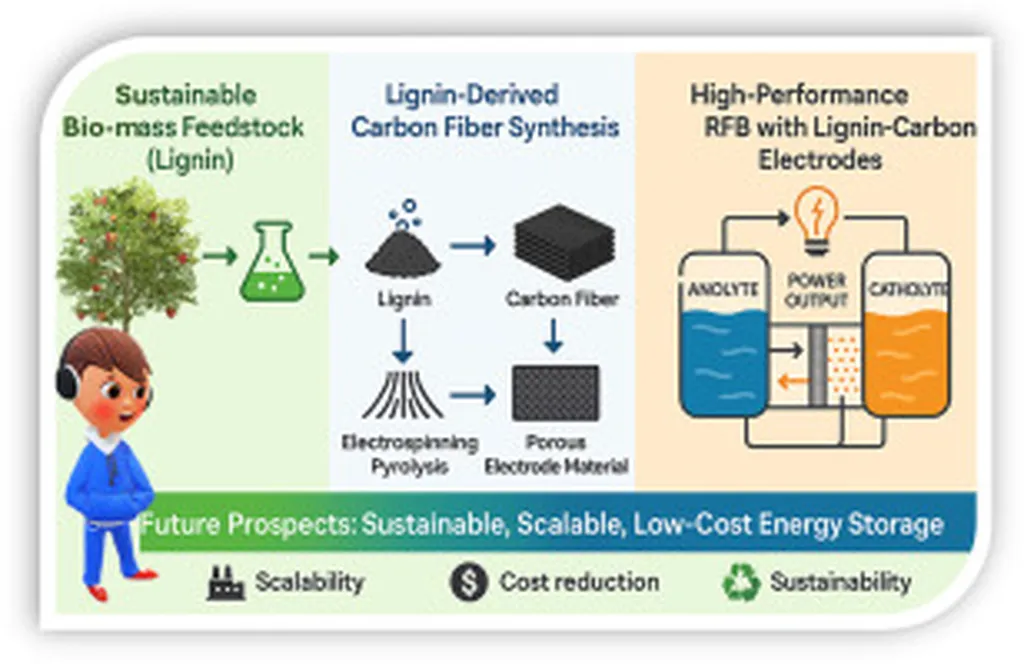In the quest for sustainable and efficient energy storage solutions, researchers are turning to an unlikely ally: biomass. A recent study published in *Materials Futures* (translated to English as “Materials of the Future”) explores how biomass-derived materials could revolutionize vanadium redox flow batteries (VRFBs), a promising technology for grid-scale energy storage. The research, led by Yuhui Ge from the UQ Dow Centre for Sustainable Engineering Innovation at The University of Queensland, Australia, offers a comprehensive review of how these eco-friendly materials can enhance battery performance while reducing costs and environmental impacts.
VRFBs are already known for their safety, efficiency, and long lifespan, making them ideal for large-scale energy storage. However, their relatively low energy density and the high costs associated with key components have been significant hurdles. “The challenge lies in developing alternative materials that can improve overall battery performance without compromising sustainability,” Ge explains. This is where biomass-derived materials come into play. These materials are not only cost-effective and environmentally friendly but also show excellent performance in enhancing the key components of VRFBs—electrolytes, electrodes, and membranes.
The study delves into the latest advancements in using biomass derivatives for these components. For instance, biomass-derived electrolytes can potentially reduce the reliance on expensive vanadium salts, while biomass-derived electrodes and membranes can improve the battery’s efficiency and durability. “By leveraging the unique properties of biomass, we can create more sustainable and cost-effective energy storage solutions,” Ge adds.
The research also highlights the challenges and unexplored opportunities in this field. While the potential is immense, there are still hurdles to overcome, such as optimizing the performance of biomass-derived materials and scaling up production. However, the study aims to promote the application of these materials for advanced energy storage, paving the way for a more sustainable future.
This groundbreaking research could shape the future of the energy sector by providing a viable, eco-friendly alternative to traditional materials. As the world continues to shift towards renewable energy, the development of advanced VRFBs using biomass-derived materials could play a crucial role in meeting global energy demands sustainably. The study, published in *Materials Futures*, offers a glimpse into a future where energy storage is not only efficient but also environmentally responsible.

